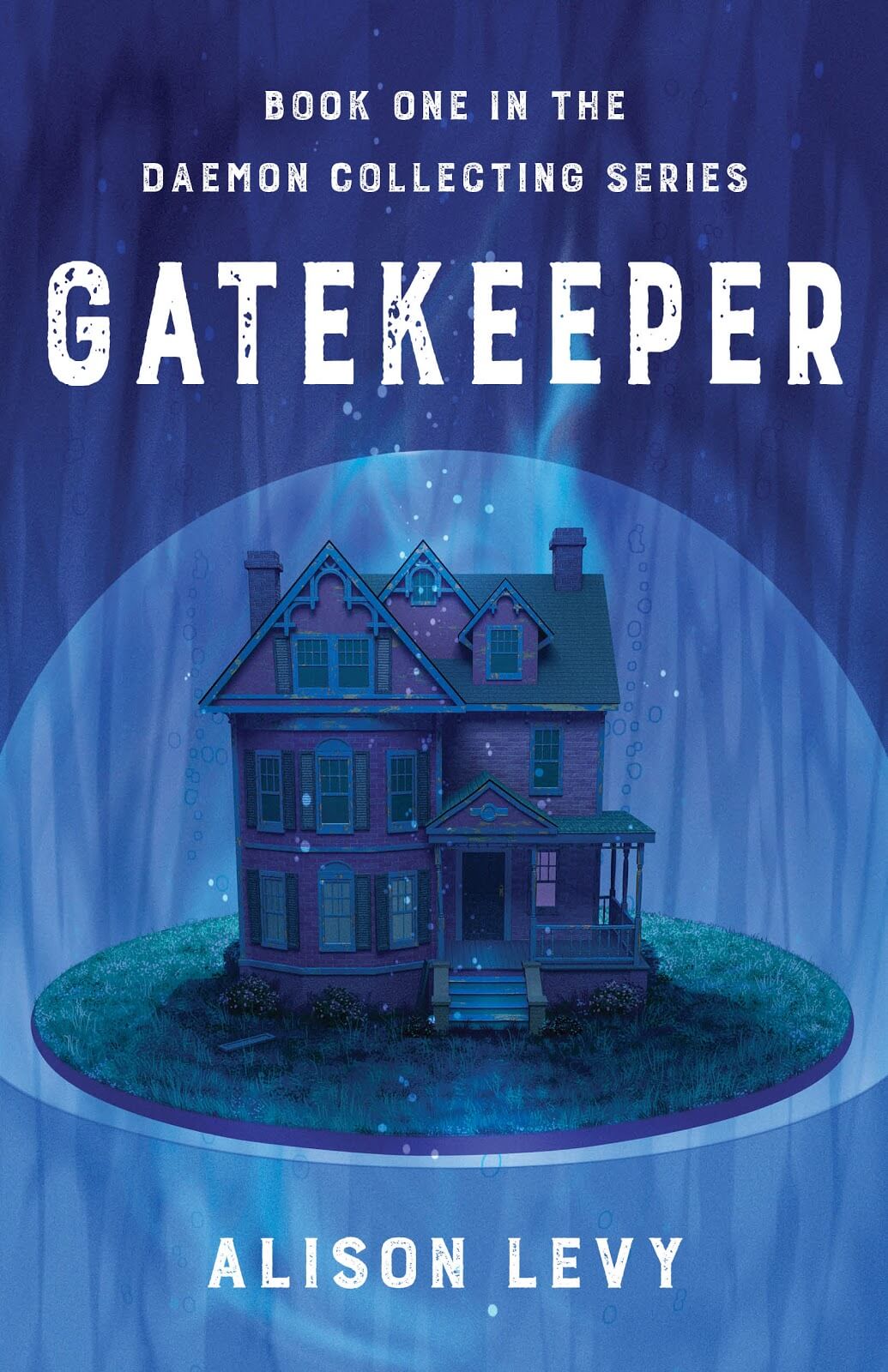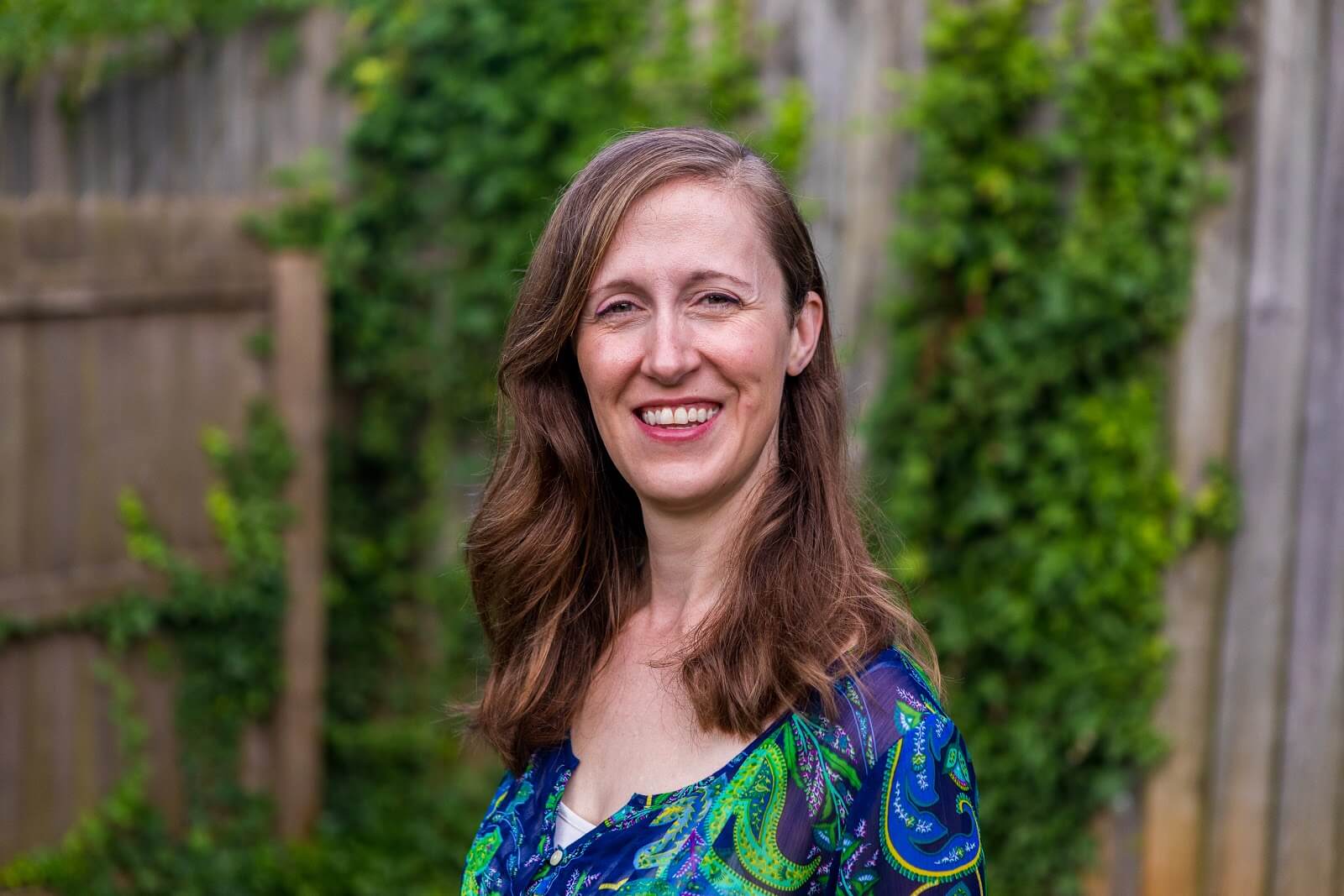FOR IMMEDIATE RELEASE:
 GREENSBORO, North Carolina – Author Alison Levy crashes onto the fantasy scene with the first installment of The Daemon Collecting Series, Gatekeeper (Spark Press, October 6, 2020). Using her writing to cope with anxiety, Levy expertly weaves a page turning story full of action, alternate universes, and heroism. Her vivid world building and unique characters show readers what it looks like to fight for survival while standing up for what is right, even if it’s risky.
GREENSBORO, North Carolina – Author Alison Levy crashes onto the fantasy scene with the first installment of The Daemon Collecting Series, Gatekeeper (Spark Press, October 6, 2020). Using her writing to cope with anxiety, Levy expertly weaves a page turning story full of action, alternate universes, and heroism. Her vivid world building and unique characters show readers what it looks like to fight for survival while standing up for what is right, even if it’s risky.
In Gatekeeper, Rachel Wilde comes from a dimension that exists adjacent to ours. The people there have structured their society around daemon collecting: they locate, catch, and repair malfunctioning daemons (creatures out of phase with our world that tempt people to do good or evil). Now Rachel has been given two unusual assignments: 1) find a person who has been trying to break down dimensional barriers, and 2) track down a missing line of gatekeepers, human placeholders for a daemon that was too badly damaged to repair.
Authorities of Rachel’s world believe the missing gatekeepers are descended from a girl who went missing from West Africa hundreds of years ago, likely sold into slavery. With no leads to go on, Rachel seeks help from Bach, a raving homeless man who happens to be an oracle. Bach does put her in the path of both of her targets—but he also lands her in a life-threatening situation. Rachel must stop the criminal, reunite a gatekeeper with her stolen past, and, above all, survive.
“Gatekeeper: Book One in the Daemon Collecting Series”
Alison Levy | October 6, 2020 | Spark Press | Fantasy
Paperback | 978-1684630578 | $16.95
E-book | B083XM9M5Q | $9.95
About The Author
ALISON LEVY lives in Greensboro, North Carolina with her husband, son, and variety of pets. When she’s not writing or doing mom things, she crochets, gardens, walks her collies, and works on home improvement projects.
In an interview, Alison Levy can discuss:
- World building and craft for fantasy writers
- How she has used writing as a tool to cope with anxiety, and advice for others dealing with anxiety
- How the fantasy genre as a whole has influenced her writing
- Her connection to the characters, and how she delicately weaves in mental health topics to her writing
- What she hopes readers will take away from this story
An Interview with Alison Levy
Can you tell us a little about how you started writing and what led you to this book now?
I wrote a story for an English assignment in 6th grade, a time in my life when my anxiety was particularly bad. My English teacher, Mrs. Webb, pulled me aside to praise my story and tell me what a good writer I was. It gave me a desperately needed shot of confidence. I’ve been writing ever since.
I’ve actually been trying for years to write this story the way I imagined it. I started and discarded two previous versions that I just wasn’t feeling. This time, I think I got it right!
How has writing impacted your life and your struggles with anxiety?
Living with anxiety, for me, is like having a tiger in the house: the tone of my day is dependent on the tiger’s mood. If the tiger is active, everything I do revolves around it; I can still get things done but if I do the wrong thing, it bites, and then I’m incapacited. Some days the tiger sleeps or wanders out of the room, but I’m always conscious of its presence and waiting for it to strike. Writing is hugely therapeutic for me. When I write, I can tune out the real world and dive into my creation. When my mind is fully engaged in creating, the tiger disappears.
What was the process of creating the world that your characters live in? Where did this story start?
This story started with my main character, Rachel Wilde. Rachel sometimes feels like the embodiment of an anxiety-free me; she’s brazen, resilient, sharp-tongued, and hard-headed. Throwing her into a difficult situation that would turn me into a pile of jelly and imagining her working through it is very empowering for me.
Your undergrad education was in anthropology — how did that influence your writing?
Anthropology teaches that we as human beings are products of the society we live in. Our day to day activities are not a universal experience; what is normal and mundane to us is exotic or bizarre to others depending on where we come from. I love inventing new cultures that are exotic and bizarre to the reader but normal and mundane to my characters.
What do you hope readers take away from this book?
I really hope my writing challenges readers to look at their own lives and cultures with new eyes. Being able to turn a critical eye on the day to day things that we usually take for granted is a crucial part of walking a mile in another person’s shoes. If we could all do this more, the world would be a better place.

A former award-winning journalist with national exposure, Marissa now oversees the day-to-day operation of the Books Forward author branding and book marketing firm, along with our indie publishing support sister company Books Fluent.
Born and bred in Louisiana, currently living in New Orleans, she has lived and developed a strong base for our company and authors in Chicago and Nashville. Her journalism work has appeared in USA Today, National Geographic and other major publications. She is now interviewed by media on best practices for book marketing.

